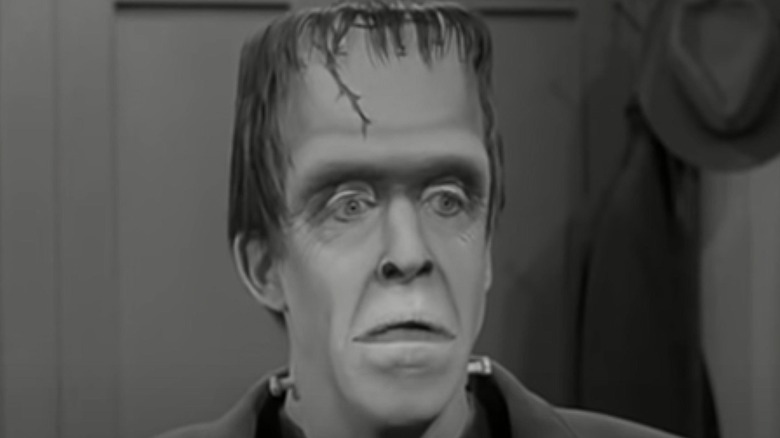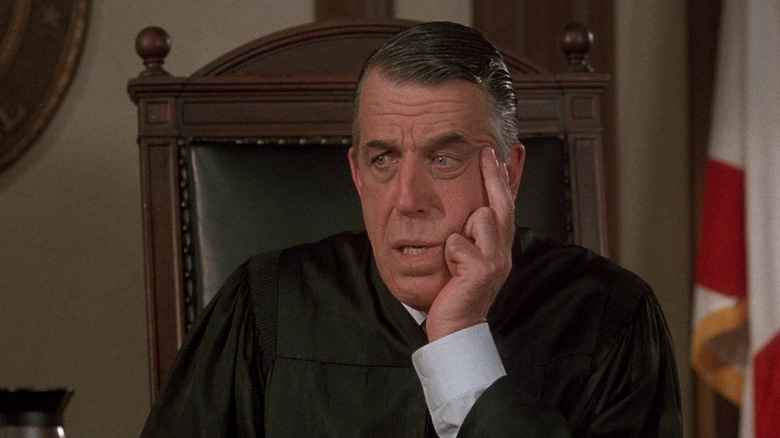The Munsters Made Finding Work A Struggle For Fred Gwynne
Part of the allure and excitement of becoming an actor is the ability to take on roles that give them a chance to live in a different existence than their own. In some instances, actors transform themselves so well that their identity becomes synonymous with the character. For some people, Daniel Radcliffe will always be Harry Potter, Mark Hamill will consistently be known as Luke Skywalker, Jamie Lee Curtis is our forever Final Girl Laurie Strode, and Fred Gwynne is the golden-hearted ghoul, Herman Munster.
After serving in World War II, Fred Gwynne started out as a theatre actor following his graduation from Harvard University. His large stature and deep voice made him an ace for roles like mobsters and law enforcement officers, but it was in 1964 that he would take on the role as the patriarch of "The Munsters" that his life would change forever.
Despite only running for two seasons, "The Munsters" was an immediate audience favorite, and Fred Gwynne became a household name for his performance as the most lovable monster Frankenstein ever built. The role skyrocketed Gwynne to fame and he became one of the most recognizable faces on television, allowing him to live off of the show's financial success alone. The financial independence allowed him to work on projects that he felt passionate about, but unfortunately, casting agents just couldn't shake the Frankenstein appearance, and Gwynne struggled to find future roles once "The Munsters" closed up shop.
More than a Munster
Gwynne spoke with The New York Times back in 1978 about his troubles finding work in film and television, realizing that he had become synonymous with the massive Munster monster. "Mr. Gwynne found himself being recognized as a mirthful monster wherever he went," wrote journalist Robert Berkvist. "He also found Herman's ghost turning up, uninvited, at auditions for other roles."
Herman Munster had allowed Gwynne the kind of fame and fortune an aspiring actor dreams of, but he had done such a good job that producers were afraid that anyone watching him on screen wouldn't be able to think anything other than, "Hey, that's Herman Munster!" Following rejection after rejection, Gwynne struggled with his relationship with Herman Munster:
"I was having a pretty tough time in my head, figuring out what I was going to do. I was drooping pretty badly, because I didn't feel I was right for anything and I didn't think that anyone else felt I was right for anything either."
Fortunately, a friend suggested that Gwynne move to Stratford, Connecticut and audition for Shakespeare productions, and he was immediately cast. He would commute between his home in Bedford, New York and Stratford where he made a name for himself in the dramatic theater scene. Gwynne played Sir Toby Belch in "Twelfth Night," Autolycus in "A Winter's Tale" and the Stage Manager in Thornton Wilder's "Our Town," before performing in "Cat" on Broadway.
Gwynne continued to act in film and television for the rest of his life, returning to the world of horror as Jud Crandall in "Pet Sematary," and, in his final film role, as Judge Chamberlain Haller in "My Cousin Vinny." The world of theater allowed Gwynne to shake his "Munsters" image, letting him secure a handful of memorable roles before his untimely passing in 1993.

